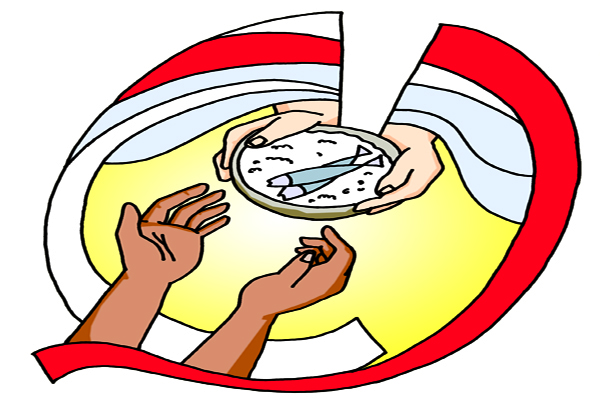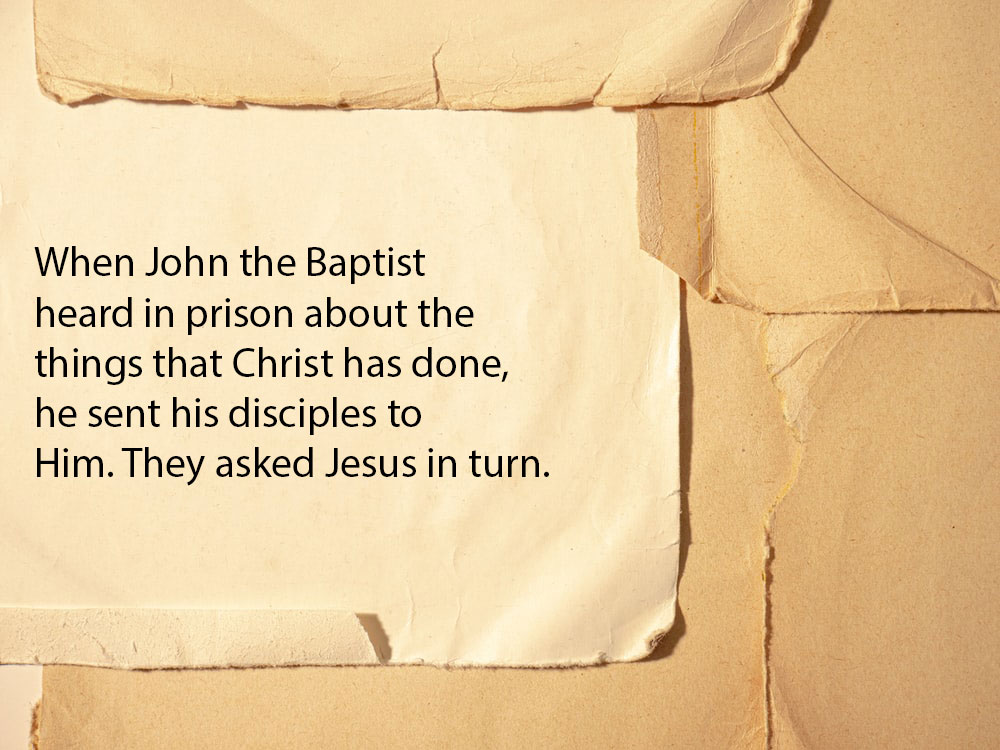by Br. Jess Matias, ofs
Among the more intriguing and memorable quotes of the Holy Father in his apostolic visit to the Philippines was his gentle admonition to “become beggars”. Though we are as Christians called to serve and give of ourselves for the glory of God and the uplifting of the Church, we may still be lacking if we are not prepared to receive by becoming “beggars”.
Why should we become beggars?
A SPIRITUALITY OF POVERTY
An important part of our Christian experience is learning to understand that we are called to give of ourselves, in loving imitation of the Christ who gave himself totally for us. We are encouraged to give love, to share our gifts and to dedicate our lives as lights in an ever-darkening world.
Indeed, we are called to become oblates for humanity, to have a love for the world that refuses to give back, and to be a symbol of that love that it seeks to keep for itself, with the hope that it will learn and start spreading the love for which we will eventually die. This is the inspiration of those who are in the missions, and ministries of the periphery – we are all constantly challenged to see beyond ourselves, and see ourselves only as God sees us. We may wish to see our self-giving as a turning-point towards Christian maturity, the result of perhaps a long process of discernment which revealed the hidden love of God.
So the giving of love never happens overnight, because as it has always been taught, we are unable to give what we have not received, or at least what we think we have not received. The zeal of giving food to the hungry for example, may be in proportion to the personal experience of hunger – the zeal of giving love may similarly be in proportion to the experience of not having enough of it. Brokenness of heart may lead to hatred, but under the proper inspiration of the Spirit, may create great saints. Contentment in love may in all probability however, lead to complacency – how important to you is the plight of the forsaken, if you yourself have never experienced it?
Holiness comes from being poor in spirit, of not being comfortable and proud over a divine love so easily given as a gift. We can start along the path to Christian maturity when we understand that we still have to ask for a love we lost, but has already been given back.
Do you feel the love of God? Do you know how much he loves you?
Can you see how much he has done for you, to the point of giving his life for all?
Do you see how much he loves everybody, including those who cannot and would not love in return?
Can you see how much his love is unappreciated?
Being aware of what we lack, and what we need, prepares us for a spirituality of poverty. As beggars, we follow the Christ of the poor. In spite of the love, in spite of the mercy and compassion which he freely gives, we follow him not only because of what has been given, but because we are humbled by receiving what we do not deserve. We follow him, not to be deserving of what has been given, which may make us proud, but to simply share what we have been blessed with.
A beggar in spite of what he lacks, if he has received in abundance and in love, will in his goodness and with uncommon zeal share that abundance.
THE BEGGAR
Have you experienced begging?
We may have all experienced being approached by beggars. Can I safely presume that we turned them down and gave nothing, much more often than giving them anything of substance?
Not all of us has experienced or will experience begging. Some if not most of us, will go through the usual milestones of life, living our mundane existence of rituals and fleeting passions, of taxes and of the incessant struggles of not having enough money, of dreams and of aspiring to fulfilling every one of them until death overtakes us. But for those whose fates have much less fortune, who like Job, lost everything and everyone that gives meaning to continue living, will be forced by such cruel circumstances, to become beggars.
When the world suddenly collapses, then there is only God.
Begging now becomes a daily paradox of hoping in the middle of hopelessness. As beggars, we become wretched, unwanted, sometimes even treated as nuisances. Ragged distractions and outcasts, we are at the rock-bottom of humanity, scarred and dirty people that no one would want to recognize or be associated with. We spend an eternity asking for what we do not deserve, and even another eternity not receiving what we badly need.
In the midst of all this desperation and loneliness, we feel for a God who we hope will understand us. Not a divinity who sits proud and adored by those who are just as proud of refusing to give us anything, but a God who also begged, who was also in want, who suffered and was rejected. Our hope is fortified by the realization that God is also one of us – one who begged through the night in prayer. May our faith then be strengthened that we can also follow in the footsteps of the Beggar – that he who receives what was given freely, will be able to give life and love just as freely to the people who rejected us.
HUMILITY, THE KEY TO GENUINE SERVICE
The spirituality of poverty – following Christ as a beggar – underscores the need for humility as a key to genuine Christian service.
In the parable of the proud Pharisee and the repentant publican, we are challenged to see the stark difference between the attitude of begging for God’s help, and of trying to becoming someone who does not need it. We are thus made more aware of the God who because of divine love, is more interested in our weaknesses, not our strengths; our failures, not our triumphs; our need for mercy, not having a feeling of possessing an abundance of it; our need for him, not having the foolish notion that he needs our goodness.
God is much more interested in the “beggars” in us.
Proud or not, we can always serve to society’s delight. But genuine service can only endure through selfless devotion, because charity is never gratifying. If we are motivated only to serve to feed our egos, then we will be disappointed.
We are only instruments of divine hands. Humility helps us in seeing ourselves as God sees us, of understanding who we really are, and not who we think we are or who we are trying to become. It is through humility that we allow God to become God in us, and not just to be us; we may in our goodness, actually become obstacles to the source of goodness.
Poverty reminds us of humility. As beggars, an honest acceptance of what we lack helps us to acknowledge our own lowliness. As beggars, we acknowledge the One who alone provides and satisfies. We become true givers, undaunted by the miseries and persecution of ungrateful generations, because our egos no longer matter. We can serve and endure, confident of his eternal gaze until death.
PRAYER
Lord, may I always be a beggar in your eyes, and in my heart! This is what I truly am and will be – a small, forgettable wisp of existence in your infinite reality. But to you my Beloved, I devote my smallness so that others may praise your greatness forever! Amen.







